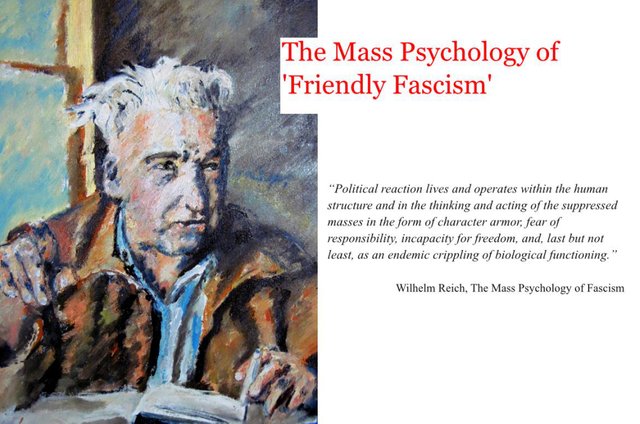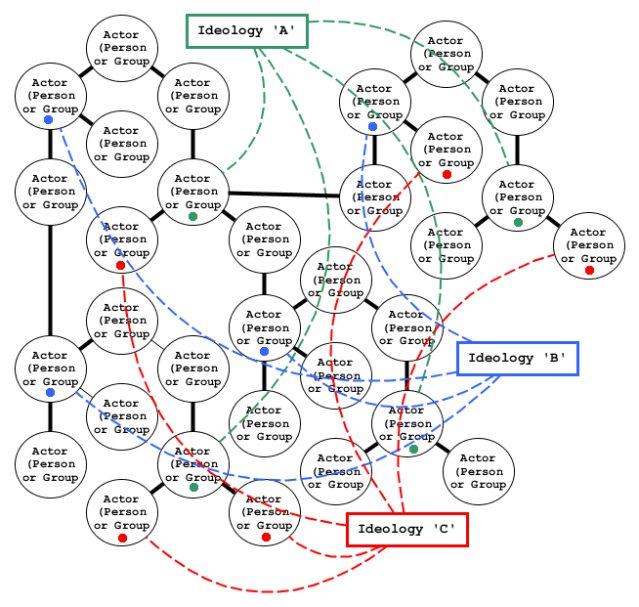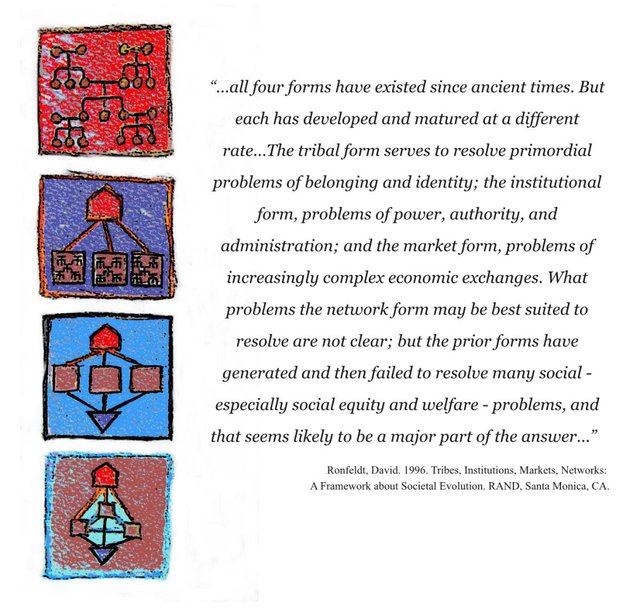The mass psychology of 'friendly fascism'

Wilhelm Reich was an Austrian psychoanalyst who began work under Freud, and introduced many of the personality-related concepts employed in modern psychology.
His early work was, and remains, well-respected. But his viewpoints and assertions became increasingly controversial and scientifically dubious as time went on.
Consequently, Reich's work deteriorated. Defamation and censorship came to plague every aspect of his professional life. And some of his more pointed insights seem to have gotten lost or become confused in modern recollection because of it.
As an ardent supporter of leftist politics, Reich found himself holding an increasingly marginal position in early 1930's Germany. During this time, he became an outspoken proponent of sexual and economic liberation as an accessible solution to many personal and social problems.
In The Mass Psychology of Fascism, first published in 1933, Reich details the clear and observable process by which he watched the control regime hijack the basic biological imperatives of a whole people.
Reich describes the combination of choice editing, theatrics, superstition-disguised-as-science, and media technology used to do this, and the psychosocial mechanics he describes did not disappear once the Nazis fell from power. Instead, the procedures used to access and operate these mechanisms became increasingly sophisticated, and the ability to effectively hijack people's minds and bodies without their knowledge or consent became synonymous with leadership in various ways all over the world.
By the mid 1950's, Wilhelm Reich had settled in the US, where his attempts to promote the healing power of sexual energy did not go over too well with the psychosocial control regime.
To say his work was censored is putting it mildly. For example, Wikipedia mentions that:
"On August 23 (1956) six tons of Reich's books, journals and papers were burned in New York, in the Gansevoort incinerator, the public incinerator on 25th Street. The material included copies of several of his books, including The Sexual Revolution, Character Analysis and The Mass Psychology of Fascism."
Wilhelm Reich died in 1957 in a US prison.
The term 'friendly fascism' refers to:
"a managed society which rules by a faceless and widely dispersed complex of warfare-welfare-industrial-communications-police bureaucracies with a technocratic ideology"
This definition comes from a 1973 Stanford Research Institute study, titled: "The Societal Consequences of Changing Images of Man." This study was later turned into the commercially published book Changing Images of Man, which is available here as a free pdf.
A New S.P.I.N. on Things
SPIN is an acronym that stands for segmented, polycentric, ideologically-integrated network. Anthropologist Luther Gerlach and sociologist Virginia Hine began using this acronym, while studying social change movements, to describe the organizational structure of effective antiwar and civil rights groups. Once they got a handle on SPINs, however, they found that this way of structuring groups also appeared to connect what was then referred to as the global 'managerial class' into a clearly-defined and well-organized group. Hine is quoted below describing the latter application of SPIN:
“The first trap is now catching people who press for legislation requiring dismantling of large corporations or tighter control over multinationals by nation states. This is to misunderstand the organizational structure binding the upper levels of the corporate giants and the nation states into a network of shared and conflicting interests. ... There is no need for conspiracy. It is only necessary that managers, corporate or governmental, understand and follow the "rules of behavior dictated by the structure that binds them" and the "set of stable assumptions," often unspoken, that inform decision making. Decisions made by people who share assumptions, even though there has been no discussion between them, will produce actions so similar that there appears to be collusion even though the actors themselves feel they occupy conflicting positions.”
Quote from: The Basic Paradigm of a Future Socio-cultural System, VIRGINIA H. HINE World Issues (published by the Center for Democratic Institutions), April/May 1977 as printed in the above-referenced book Changing Images of Man.

Tribes, Institutions, Markets, and Networks
The TIMN framework was developed by David Ronfeldt of RAND. While lamenting the general lack of attention paid to the SPIN designation, Ronfeldt draws directly on Gerlach and Hine to present an extremely clear basis for considering our societal context. This relies on categorizing the interactive modes and structures of groups. The acronym stands for Tribe, Institution, Market, and Network, and in his own words:

Each of these designations can be seen to correspond to ways of thinking and operating, as well as to an organizational 'signature' of dominant relational patterns within an identifiable group's activities. The historic development of these is easy to understand in terms of strategic innovations that, over time, have been adopted to solve the problems of increasing societal complexity. Ronfeldt then uses his perception of the historic interaction of these innovations to zero in on 'network' as a distinct, and specifically defined, organizational structure and mode of interaction that is becoming increasingly prominent and influential. This is described as a transition from a T+I+M society to a T+I+M+N society.
Although Rondfeldt treats the 'N' mode of interacting, and its manifest presence in society, as contingent on the T+I+M structure being firmly in place, this view is not supported by the way that the N mode has evidenced itself in T+I or even T cultures in recent years, producing T+I+N and T+N scenarios in various places, at various times, throughout the world.
In other words, Ronfeldt's framework describes a fundamental shift that has taken place within our society, and may also be used as a tool for examining the operations of this shift upon our societal structure.
Our transition to a +N world is substantive. In fact, I would go so far as to say that it is no less significant than the transition from mechanical to organic solidarity, which resulted from, and in, the production of economies of scale through division of labor.
These terms come from the sociologist Emile Durkheim. 'Mechanical solidarity' is the cohesive social order that comes about when a culture is homogenous and kinship-group-centered individuals all share assumptions, lifestyles, and basically believe the same things. As society becomes more complex, it becomes heterogenous, and labor becomes increasingly more specialized. 'Organic solidarity' then replaces the prior social cohesion with bonds of interlocking material dependencies.
While Durkheim acknowledges that anomie and social pathologies arise from this upending of the social order, he believed these to be temporary problems in an otherwise perfect march towards progress from 'primitive' to 'advanced'. While this belief is unwarranted, I find his regard for social consciousness as an evolving phenomenon to be interesting and useful.
The transition from 'mechanical solidarity' to 'organic solidarity' is described in: Durkheim, E. (1997). The Division of Labor in Society. New York, NY: Free Press.
If this transition to a +N world is a great leap forward, it is forward in many different directions simultaneously. To process the implications of this in a meaningful way is challenging, because our shared assumptions - and the conceptual frameworks on which these are based - do not appear to kept pace with the rate of the world's transformation.
The Mass Psychology of Friendly Fascism in Our +N World
A cursory glance at our anthropogenic quagmire reveals that a catastrophic unravelling of the biophysical, psychosocial, and other core systems on which our society depends is taking place. Climate change is a thing. So is the holocene extinction. So is antibiotic resistant bacteria. And epidemic mental illness. And so on.
These things did not come about for no reason, but rather as consequences of actions carried out by people, behaving in accordance with their understandings of the world and their place in it. These understandings are naturally limited in scope. They are largely acquired unconsciously, and the decisions people make about how to behave in a given situation are also largely unconscious.
Historically, our unconscious decision-making procedures have been geographically bounded and synchronized by fairly strict, culture-specific rules. But the pathway along which our technologies have developed changed all that. For better or worse, a socio-evolutionary leap into entirely unmapped territory seems to be taking place. And it is on us to figure out how to navigate this.
Given the way 'friendly fascism' seems to have been developing unchecked for the last couple of decades, I would like to imagine that we have become resistant to the sorts of unconscious manipulations identified by Wilhelm Reich in 1933. Maybe some of us have, and many of us do appear to be working on something along these lines, but there are plenty of people that behave as if they would rather simply ignore the issue. And many that work as hard as they can to exploit the weaknesses in others' unconscious decision-making procedures for fun and profit.
The situation produced by such exploitation is thoroughly and increasingly problematic. I call this situation the trancewar.
The trancewar will be the subject of several upcoming posts.
Great content I featured you on my TOP 5 Psychology posts. HERE
Wilhelm Reich was one of the many great minds which were ignored by the mainstream academic (like Tesla and others).
I think "friendly fascism" was well described in "Brave new world" by Aldous Huxley, different from unfriendly one of Orwell's 1984.
Great post, following you for more!
Thanks! If you're interested, there's a Huxley quote alongside one of my historic portraits at the end of a post I did a couple of days ago: https://steemit.com/life/@mada/philosophical-reflections-on-being-hit-by-a-cop-car-as-a-kid-and-growing-up-alongside-the-world-wide-web
argh, i almost missed this one. wilhelm reich should be so much more well known. he originated orgone, bioenergetics came directly out of his work. rolfing, also known as structural integration was heavily influenced by him. he had many inventions and i believe was persecuted by the AMA, had much of his work burned and was put in prison for trying to help us all. excellent post. thank you.
I looked at Oliver Markley's website (where The Changing Images of Man link was hosted). The book will take some time to get through, but this video was only about fifteen minutes long.
It's very clear that what he terms "imaginal visioning" is hypnosis. The lemon exercise he leads off with is a classic "convincer" that hypnotists use to demonstrate the power of suggestion.
Markley is well-versed in hypnotism. He combines this with creative visualization and some other techniques (involving social psychology, etc) to make it easier for people to work with intuition.